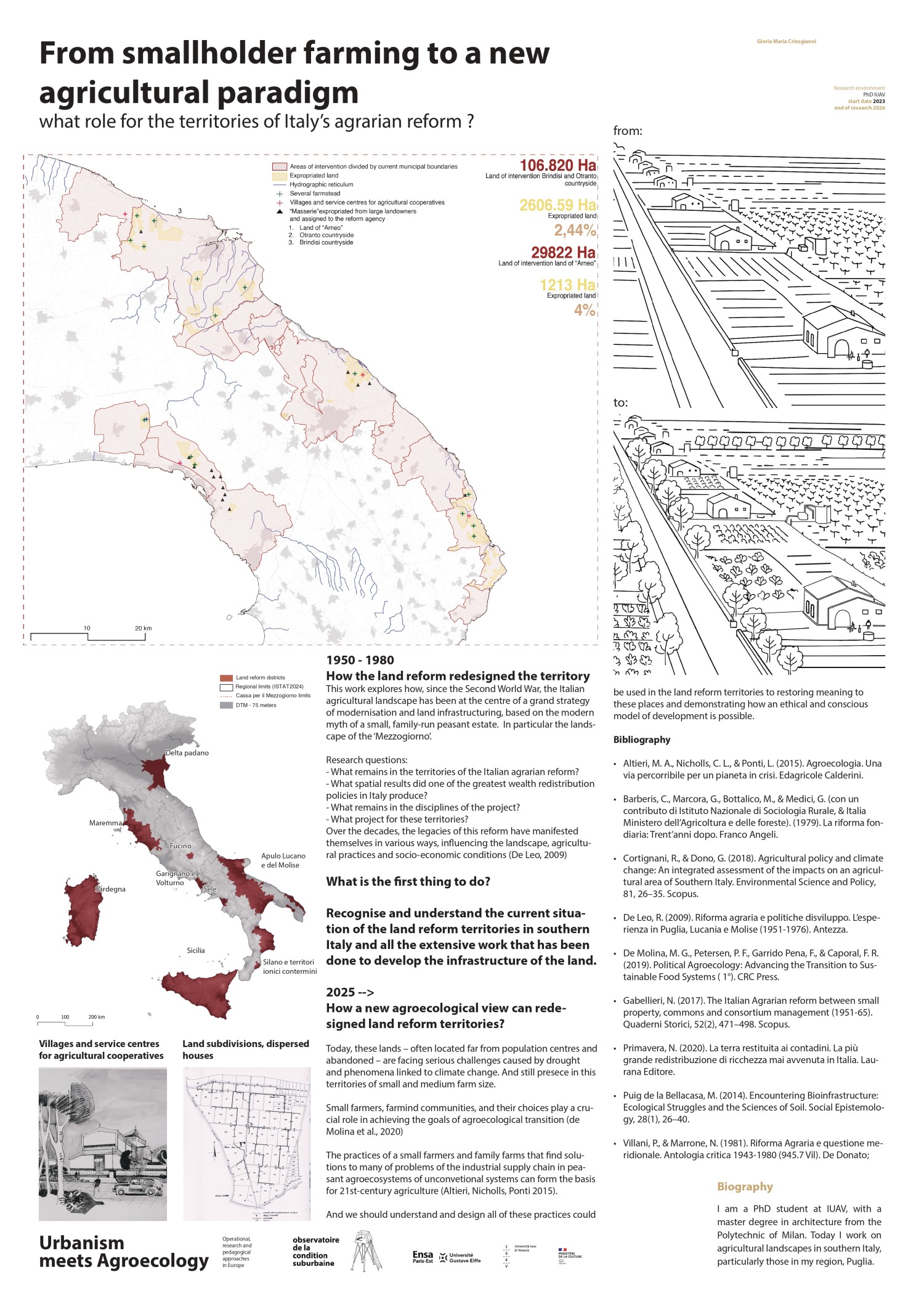From smallholder farming
To a new agricultural paradigm
Since the post-World War II period, the Italian rural landscape has undergone a profound paradigm shift: from a system dominated by large landed estates, often managed through sharecropping and marked by exploitative labor relations, to a national strategy of agricultural modernization, with agrarian reform as its key instrument.
This policy, territorially based and focused on promoting smallholder family farms, deeply transformed the Italian countryside—especially in the South—creating new physical and social infrastructures in rural areas. However, the economic model underlying the reform failed to halt rural depopulation or ensure long-term development, leaving behind territories often perceived as
marginal or unsuccessful.
This doctoral research investigates the legacy of agrarian reform through the urban and territorial analysis of two emblematic regions in Southern Italy—Capitanata and Salento—with the aim of reconstructing their transformation trajectories, current challenges, and the spatial outcomes produced by one of the most extensive wealth redistribution policies in the history of republican Italy (Primavera, 2020; De Leo, 2009).
Today, these areas face a profound crisis in agricultural production and supply chains, caused by multiple factors: soil degradation, intensive farming, olive monoculture, excessive land fragmentation, climate change, and severe water scarcity affecting much of Southern Italy.
Yet—perhaps precisely because of these vulnerabilities—some of these former agrarian reform territories are witnessing the emergence of agroecological practices promoted by cooperatives, social farms, and grassroots associations. Often inspired by traditional farming methods and collective management models, these initiatives contribute to reinterpreting the legacy of the reform not as a failed strategy, but as a material and symbolic infrastructure from which to build a new agroecological paradigm (McMichael, 2023; Puig de la Bellacasa, 2014).
Through an integrated analysis of agrarian geographies, territorial practices, and development policies, this research argues for a shift in perspective: rather than viewing these areas solely as places to be regenerated, they can be understood as potential laboratories of ecological and social innovation, capable of contributing to the construction of a more just, cooperative, and resilient agriculture.
Gloria Maria Crisogianni holds a degree in Architecture and Urban Design from Politecnico di Milano and is a PhD candidate in Urban Planning at IUAV University of Venice. Her doctoral project explores the spatial and infrastructural legacies of Italy’s
1950 Agrarian Reform, examining old and new paradigms of the rural landscape in the Apulia region.
← go back to
the programme
Affiche scientifique →
voir l'affiche en grand
